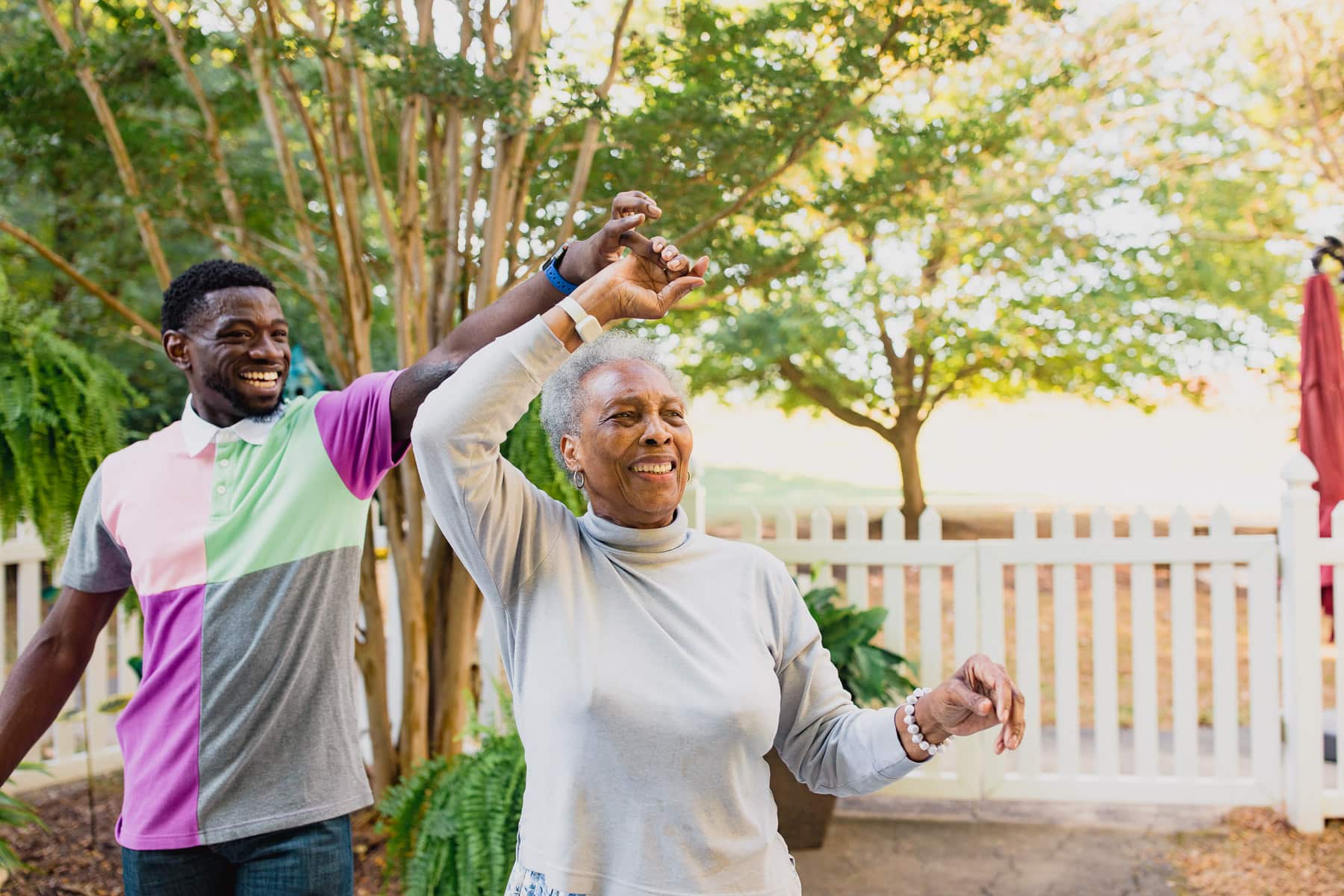The caregiver demographic in America is changing. Today, about one in four adult caregivers are considered Millennials — which includes those who were born during the years 1981-1996.
These caregivers face unique challenges. According to an AARP Public Policy Institute report, almost three in four Millennial caregivers are employed, and one in three earns less than $30,000 a year.
It’s important for Millennial caregivers to receive the proper amount of support, and to know when it might be a good decision to consider assisted living or memory care for their senior loved ones.
Read on to learn more about the options available to this group of caregivers.
A Millennial caregiver’s unique challenges
Compared to other generations of caregivers, Millennial caregivers are more likely to be working in addition to providing over 20 hours a week of care. According to the AARP report, they face a lack of support at work for their caregiving responsibilities, which often affects their work in significant ways.
The report also showed that Millennial caregivers spend more of their incomes on caregiving than any other generation. As a result, these caregivers who don’t have significant income are spending more, leading to fewer resources for their savings, their growing families, and their futures.
Similarly to other generations, Millennial caregivers support their loved ones with tasks such as:
- Eating and meal preparation
- Bathing and toileting
- Shopping
- Complex medical or nursing tasks
While Millennial caregivers seek support from other family members and friends, as well as the internet, they desire more tips and support for coping with caregiver challenges as well as stress management.
How Millennial caregivers can seek balance and support
While the AARP report addresses how Millennial caregivers will need greater incomes and more support and flexibility from employers in the future, how can this generation find support now?
Research and ask questions
Understanding your loved one’s illness and the resources they need can be tough and confusing. Don’t be afraid to ask their doctors many questions, and ask for pamphlets, websites, or other sources of information. There’s no shame in not knowing.
Gain confidence from being an advocate for your loved ones, and be honest with those around you about the responsibilities and challenges you face.
Be organized and thorough
Take diligent notes during appointments and meetings. Learn the ins and outs of your loved one’s insurance, care preferences, medications, and treatments.
It also is helpful to develop a regular routine and stick to it. This will help both you and your loved one to better manage time and expectations.
Embrace flexibility
What might it look like to have Mom or Dad living with you while you’re engaged or newly married? Release expectations of what life should or could be, and instead focus on your personal priorities and values.
Holding on to the “what ifs” can cause more stress and anxiety. The decisions you make need to be about what is best for you and your family, no matter what others think.
Recognize caregiving as a natural part of life that comes with aging.
Ask for support from family and friends
If you begin to feel overwhelmed and depressed, you might be facing caregiver burnout. Remember, you can’t properly care for another person if you’re unable to care for yourself.
Reaching out for help is necessary. Ask for support from family and friends for tasks such as:
- Shopping or picking up medications
- Calling or visiting regularly
- Helping you navigate or create a care plan
If you need additional support, research options for local home health care aides or other in-home assistance. Use grocery, food, or medication delivery options if you’re unable to run those errands during the day.
Support doesn’t just mean helping you perform tasks, it also means a friend or family member offering an ear to listen or a game night to relax and have fun. Remember to take quiet moments for yourself to recharge.
When assisted living might be the best option
No matter the generation, there can come a time when a caregiver is no longer able to provide the necessary accommodations for their loved one.
Whether you are facing physical, safety, financial, or emotional barriers to care, it might be time to consider how an assisted living or memory care community can support you and your family.
A community such as The Kensington White Plains is dedicated to unique, exceptional care for our residents. The difference stems from Our Promise to love and care for your family as we do our own. This promise touches every aspect of our services.
Life enrichment
Assisted living can be a gift to your loved one, helping them to continue to find purpose and strength in their lives. The Kensington White Plains provides an active social life for residents, offering activities seven days a week.
We are always searching for ways to nourish the spirits of our residents, and keep them mentally and physically engaged.
Specialized care
Beyond assisted living, our community offers several layers of specialized care. No matter what your loved one is facing, we can provide the proper support — including advanced dementia and Alzheimer’s care as well as rehabilitation services.
In addition to our exceptional memory care communities, we also provide support for:
Your loved one can truly “age in place” at The Kensington White Plains, in a cozy, safe environment where all of their needs can be met at any phase of life.
Reach out to us today to learn more about our community and our wide range of services and support.



